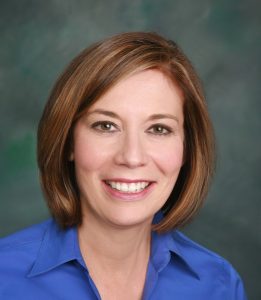-
What We Do
- WHERE WE WORK
-
About Us
 Welcome Message from Carol Jenkins
Welcome Message from Carol JenkinsFor more than 90 years, World Learning has equipped individuals and institutions to address the world’s most pressing problems. We believe that, working together with our partners, we can change this world for the better.
On my travels, I’ve had the opportunity to meet with many of those who have joined us in this mission. In Baghdad, we’ve trained more than 2,300 Iraqi youth who are already giving back at home. In London, our partners in the TAAP Initiative strongly believe that we are all responsible to practice inclusion. And in Vermont, our Experiment in International Living and School for International Training participants prove every day that they have the tools and the determination to change the world.
Please join us in our pursuit of a more peaceful and just world.
- Get Involved
Media Center > Story
Social Distancing Calls for Innovative Solutions for Engagement
April 20, 2020
By World Learning Inc. CEO Carol Jenkins
 The COVID-19 pandemic has upended daily life, work, school, and much more for individuals and communities around the world. World Learning Inc. — a global organization that includes The Experiment in International Living, School for International Training (SIT), and the development and exchange nonprofit World Learning — is no different. With most of our global programs conducted in person, social distancing at first seemed to represent the antithesis of who we are.
The COVID-19 pandemic has upended daily life, work, school, and much more for individuals and communities around the world. World Learning Inc. — a global organization that includes The Experiment in International Living, School for International Training (SIT), and the development and exchange nonprofit World Learning — is no different. With most of our global programs conducted in person, social distancing at first seemed to represent the antithesis of who we are.
But challenging times can bring out the best in people and this organization has a history of finding its best and most relevant self when the world most needs it. In 1932, in the midst of the Great Depression, Dr. Donald Watt founded The Experiment in International Living to provide a new cultural immersion experience and promote cross-cultural understanding. In its second year, The Experiment was the first program of its kind to offer homestays, which allowed participants and hosts to build meaningful long-lasting relationships. World Learning and its educational arm, School for International Training, both emerged from this revolutionary experiment.
Since then, we have been involved in efforts to train the first Peace Corps volunteers, resettle refugees after the Vietnam War, support peace and reconciliation in the Balkans, and confront the HIV/AIDS epidemic in Africa, among many others. Today, World Learning Inc. is able to draw on almost 90 years of experience as we advance our mission to create a more sustainable, just, and peaceful world through people-to-people exchanges, education, civic engagement, institutional and workforce development. In this time of crisis, this diversity of programs has become a core of strength from which we can draw to address the challenges before us.
One example is the way our teams pulled together to repatriate more than 900 students around the world as the pandemic spread. This exhaustive, two-week effort included staff and faculty from across World Learning Inc., working round-the-clock shifts, and contributing expertise in a wide range of fields such as diplomacy, global security, development, and more. Now that our students our home, SIT is utilizing our years of experience offering accredited low-residency master’s degree programs to transition our study abroad courses online
The Experiment in International Living, now in its 88th year, is also transitioning its traditional in-person exchanges to online programming for summer 2020 as part of its existing program: The Experiment Digital. This virtual exchange connects teenagers from across the U.S. with peers from the Middle East and North Africa to discuss topics such as digital citizenship, leadership and identity, community initiatives, and public narrative. The Experiment Digital is one of two online exchanges the organization implements with the support of the Stevens Initiative. The other is the NextGen Coders Network, which brings together students and young professionals from Iraq, the Palestinian territories, and the U.S. for a virtual exchange to learn coding and collaborate on a website or application that tackles a grand challenge.
In what we’re calling “blue skies thinking” we are coming up other with creative, innovative ideas for how to implement programs, including our undergraduate summer programs, U.S. Department of State-funded youth exchanges, Global Master’s degrees, and development programs around the world.
So, while social distancing and quarantines may seem incompatible with World Learning’s founding principles of engagement and interaction, it turns out that’s not necessarily the case; that even in the midst of such dramatic change and challenge, there are real ways to be faithful to what we care most about.
It’s said that every crisis presents an opportunity. While it has been difficult to discern in this crisis, what is emerging is an opportunity to examine who we are and who we want to be; to see the new realities that perhaps we hadn’t seen before; to understand that we don’t just build back, we build back better.





